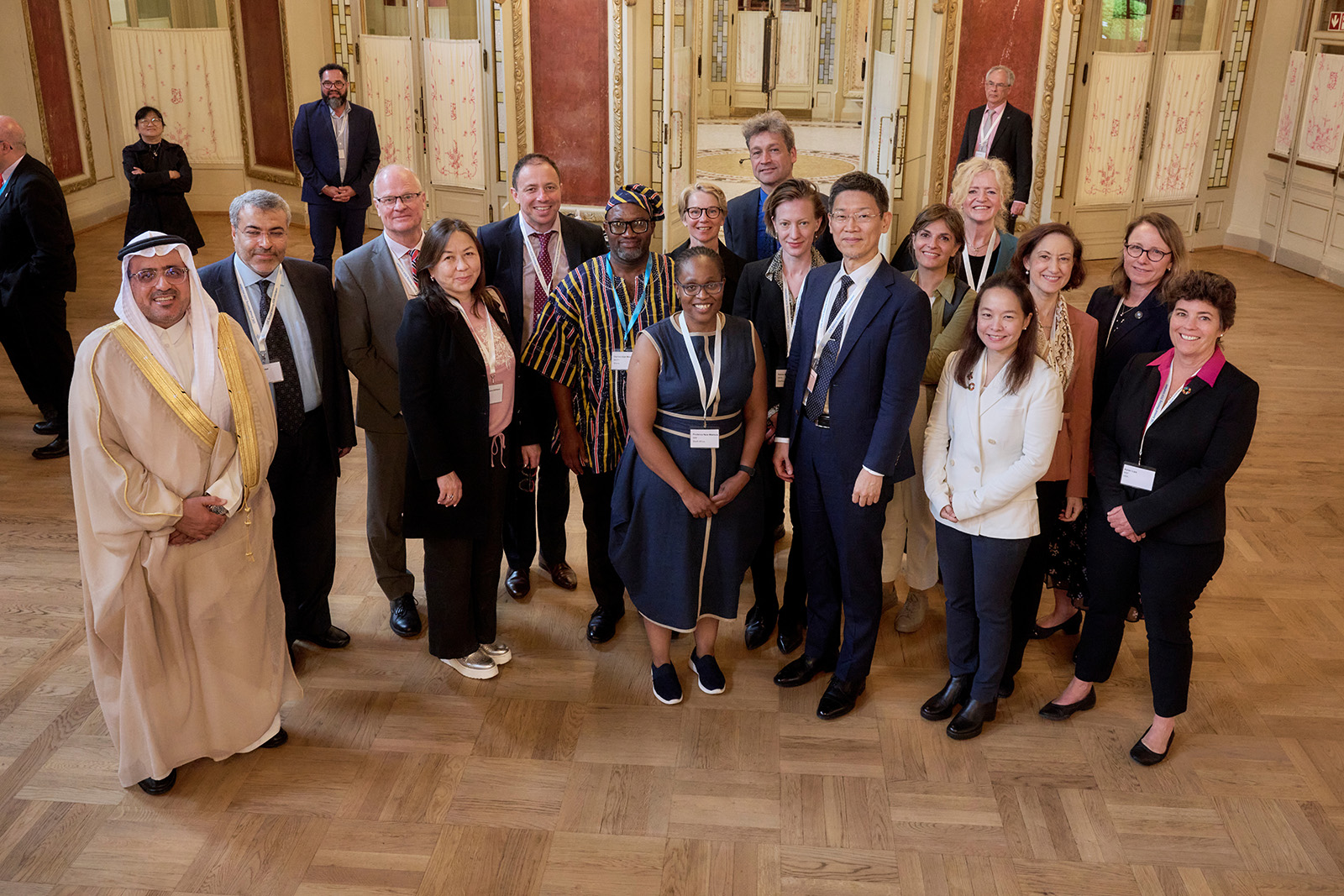Multilateral Engagement Working Group

One of the primary objectives of the GRC is to actively facilitate and promote bilateral and multilateral collaboration among participant organisations, with the aim of supporting the global science enterprise, fostering the worldwide research community, and effectively addressing global challenges.
The Multilateral Engagement Working Group (MLE-WG) was created as a result from the broad interest of GRC participants for a stronger multilateral engagement, and has the following objectives:
- map the landscape of available multilateral funding mechanisms/programmes globally;
- scope possible roles for the GRC in facilitating multilateral engagement; and
- develop options for respective implementation and a roadmap for multilateral collaboration.
Background
At the 10th GRC Annual Meeting in Panama, a side-event brought together approximately 60 participants from 35 countries/organisations to discuss the need for multilateral funding endeavours. The participants emphasised the importance of effective multilateral research funding taking a necessarily broader perspective on global crises/challenges. The participants explored general mechanisms and tools for multilateral funding in scientific research, addressing challenges and collecting ideas for the GRC to potentially advocate for, facilitate, or develop its own mechanisms and tools for multilateral engagement.
Based on these preliminary results, the GRC Governing Board mandated the organisers of the side event to outline options for a continued and goal-oriented discussion towards scoping and implementing possible roles for the GRC in facilitating multilateral engagement.
The GRC Multilateral Engagement Working Group (MLE-WG) was officially established on 1 June 2023 during the 11th GRC Annual Meeting held in The Hague. The working group can be contacted through its secretariat at moanaminami.sato@jst.go.jp
Current members
| Americas | |
| Sebastian D'Agrosa Okita | National Scientific & Technical Research Council (CONICET) Argentina |
| Concepta McManus | São Paulo Research Foundation (FAPESP) Brazil |
| Shaun Baron | Natural Sciences and Engineering Research Council of Canada (NSERC) Canada |
| Sharapiya Kakimova (Co-Chair) | National Agency for Research and Development of Chile (ANID) Chile |
| Ana Vásquez Herrera | National Agency for Research and Innovation (ANII) Uruguay |
| Asia-Pacific | |
| Nianhe Rong | National Natural Science Foundation of China (NSFC) China |
| Osamu Kobayashi | Japan Science and Technology Agency (JST) Japan |
| Enrico Paringit | Philippine Council for Industry, Energy, and Emerging Technology Research and Development (DOST-PCIEERD) Philippines |
| Sirinan Kulchat | Thailand Science Research and Innovation (TSRI) Thailand |
| Europe | |
| Lidia Borrell-Damián | Science Europe Europe |
| Marcus Wilms | German Research Foundation (DFG) Germany |
| Michael Ryan | Taighde Éireann | Research Ireland Ireland |
| Helena Burg | Luxembourg National Research Fund (FNR) Luxembourg |
| Rune Vistad | Research Council of Norway (RCN) Norway |
| Britta Fängström | Swedish Research Council for Sustainable Development (FORMAS) Sweden |
| Duygu Saracoglu | The Scientific and Technological Research Council of Türkíye (TÜBITAK) Turkey |
| Michael Bright | UK Research and Innovation (UKRI) United Kingdom |
| MENA | |
| Ali Bumajdad | Kuwait Foundation for the Advancement of Sciences (KFAS) Kuwait |
| Riham Daher | Qatar Research, Development and Innovation Council (QRDIC) Qatar |
| Hassan Y. Alayied (Co-Chair) | King Abdulaziz City for Science and Technology (KACST) Saudi Arabia |
| Sub-Saharan Africa | |
| Cephas Adjei Mensah | Ministry of Environment, Science, Technology and Innovation Ghana |
| Sékou Traoré | Ministry for Higher Education, Research and Innovation Guinea |
| Jacob Kamwaria Njagih | National Research Fund (NRF) Kenya |
| Prudence Makhura | National Research Foundation (NRF) South Africa |
